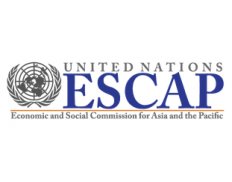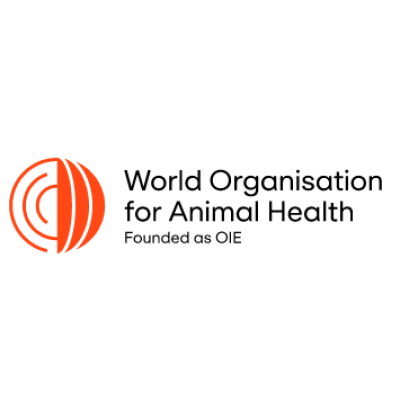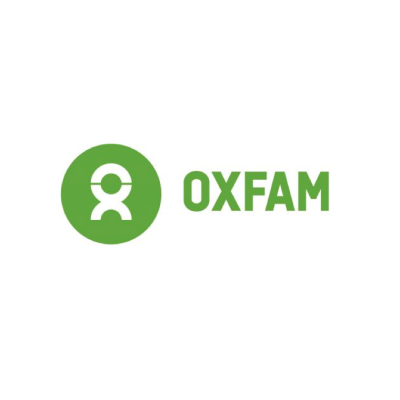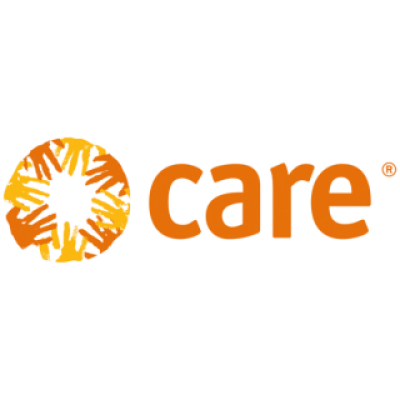Details
Description
Background
Project Information
More than 30,000 individuals, including family members, from more than 80 countries are believed to have travelled to Syria and Iraq to join Da’esh and other UN designated terrorist groups. While some family members joined voluntarily, many others were forced, manipulated, or coerced to travel with family members or to follow them. Moreover, thousands of children were born into the conflicts in Syria and Iraq to foreign parents. The project will focus on four countries in Central Asia - Kazakhstan, Tajikistan, Uzbekistan and possibly Kyrgyzstan - and will work under specific results areas relevant to each country’s context.
Kazakhstan is one of the few countries that has repatriated the majority of its nationals from both Syria and Iraq. This includes 420 children some of whom had never been to Kazakhstan, needed to acquire an additional language, and were meeting the relatives who will care for them for the first time. Since 2019, in Kazakhstan, the rehabilitation centres for women and children returning from conflict areas were organized to support their resocialization and adaptation. Authorities helped the women to obtain a job, receive documents and adapt to a peaceful life.
Since 2018, Tajikistan has received 19 returning children from Syria and has repatriated 84 children from Iraq. While the 19 returnees from Syria were reintegrated to communities of origin, the 84 returnees from Iraq remain in residential institutions and have yet to be reunified with families and communities of origin. Tajikistan requires stronger and more consistent support from the UN as it lacks experience in reintegrating children and women affected by armed conflict back into society. Efforts have already begun by engaging Tajikistan in regional dialogues on reintegration approaches taken by other Central Asian countries.
Since May 2019, Uzbekistan has implemented three campaigns to repatriate its citizens from Iraq and Syria. Of its 220 repatriated Uzbek nationals from Syria and Iraq, 172 were children, and 48 were women who were given legal amnesty which allowed them to be reintegrated into communities with their children or family members. In December 2020, an additional 25 Uzbek women and 73 children who had been living in armed conflicts zones in Syria were repatriated. In addition to repatriations from Syria and Iraq, Uzbekistan has repatriated a number of women and children from Afghanistan.
The overall objective of the project is to support States in Central Asia in the rehabilitation and reintegration of their citizens returned from conflict zones. The project is being implemented through two joint UN Programmes in Central Asia: (i) with the United Nations Children’s Emergency Fund (UNICEF) and European Union (EU) in Kazakhstan, Tajikistan, Uzbekistan and possibly Kyrgyzstan; and (ii) with the United Nations Office of Counter-Terrorism (UNOCT) and United States Agency for International Development (USAID) in Uzbekistan. In cooperation with the UN system in Central Asia the project envisions to provide child and human rights-based, age and gender-sensitive technical assistance to Kazakhstan, Tajikistan, Uzbekistan, and possibly Kyrgyzstan to support families of the returnees from primarily Syria and Iraq. The project will increase advocacy and contribute to national efforts to effectively mainstream gender and human rights perspectives in policy frameworks, processes, and measures to address Screening, Prosecution, Rehabilitation and Reintegration (SPRR) at the national level. The project will also leverage experience gained from work in the four participating countries to facilitate information exchange and dialogue on gender-sensitive recovery and rehabilitation measures with other Member States in the Central Asia region.
Expected results of the projects:
Gender specific challenges and needs of returnees in each country are better identified and gender- sensitive solutions and recommendations are provided to inform and strengthen gender responsiveness of the recovery measures.
Institutions and professionals have increased capacities and sensitiveness to respond to the needs of women and children returnees from conflict areas (in accordance with international standards and rule of law).
Repatriated women and children receive a full range of services tailored to their individual needs.
Gender-sensitive practices, lessons, and approaches are aligned and shared across the region and coordinated within different UN agencies and among practitioners supporting reintegration.
Country-wide Repatriation, Reintegration and Rehabilitation (RRR) strategy and policy are in line with international frameworks and through a whole-of-UN approach to ensure coherent and comprehensive UN support on future and prior repatriation efforts, thereby strengthening national legislative, policy frameworks and institutional capacities.
Rehabilitation and reintegration strategies promote child-sensitive, gender-sensitive and human rights-based responses and include, but is not limited to, addressing health, psychosocial care, resocialization, disengagement, individual assessments, and reintegration for women, adolescents, and children.
Success stories and results of the project are properly promoted and communicated to the relevant audiences, including visibility on UN digital platforms (in line with UN Women and donor’s communications guidance).
Organizational Context
Overall coordination of the programme will be through the UN Women Regional Office for Europe and Central Asia and UN Women in Kazakhstan, in close collaboration with UN Women in Kyrgyzstan and Tajikistan and with UN partners in Uzbekistan. The project will be implemented in close coordination with the UNICEF Regional Office for Europe and Central Asia.
Under guidance of the UN Women Regional Office for Europe and Central Asia, the Programme Coordinator is responsible for the timely and quality delivery of project outputs and outcomes. S/he will ensure effective implementation of daily activities of the project and compliance with appropriate UN Women and donor’s policies and procedures.
The Programme Coordinator will supervise short-term international and national consultants providing services in the framework of the project and will work in close collaboration with UNICEF focal points responsible for implementation of assigned components of the project.
The Programme Coordinator will be supported by the UN Women, communications and operations teams in the UN Women Country and Regional Offices
Duties and Responsibilities
The Programme Coordinator will be responsible for overall project implementation in Kazakhstan, Kyrgyzstan, Tajikistan, and Uzbekistan, in accordance with the EU Project Document (Description of Action) and the USAID funded project in Uzbekistan and approved work plan and within the provided budget.
The Programme Coordinator is expected to work closely with the UN Women and UNICEF Regional Offices for Europe and Central Asia and relevant Country Offices, national authorities, and other project counterparts in the Central Asia region:
1. Coordinate the Programme
Coordinate the overall programme work plan development and implementation according to programme documents.
Liaise with the programme partners, national counterparts, local civil society, relevant authorities and women's organizations, donors, and other stakeholders to ensure the programme results are timely achieved and resources are properly managed.
Prepare and present work plans, periodic narrative progress reports and expenditures status reports to UN Women, UNICEF, and the donors.
Establish systems for project planning, implementation, and monitoring, in collaboration with programme partners.
Record and maintain documents on relevant programme activities, issues, and risks.
2. Guide coordination with national partners and other stakeholders
Coordinate relationships with national partners to support implementation and expansion of the programme portfolio.
Identify potential problems/risks and provide solutions and risk mitigation strategies for the effective programme implementation in line with programme documents.
Provide guidance to partners on establishment of performance indicators, and monitoring achievement of results.
Identify capacity-building needs and support partners through technical assistance, mentoring, training, cross-partner learning, and capacity development initiatives.
3.Coordinate the monitoring and reporting on the Programme
Gather and compile all information necessary for monitoring and reporting on programme from the planning to the evaluation stage.
Monitor the implementation of activities and the expenditure of funds.
Write annual and quarterly reports; review and coordinate the timely submission of reports to donors.
Provide inputs from programme activities and results to Country Offices in Kazakhstan, Kyrgyzstan, Tajikistan, and Uzbekistan, in close coordination with the UN Women Regional Office.
4. Manage financial resources and supervise staff
Supervise and manage a team of consultants, review performance and mentor/coach staff.
Coordinate development and preparation of financial resources of the Programme including budgeting and budget revisions, and expenditure tracking and reporting in line with UN Women and donor's rules.
5. Build partnerships and support in developing resource mobilization strategies
Provide technical support to the development of partnerships and resource mobilization strategies.
Identify potential programmatic areas of cooperation, based on strategic goals of UN Women, country needs and donors’ priorities and develop the relevant partnerships.
6. Advocate and facilitate knowledge building, and management and communication
Ensure documentation of the programme implementation process and products produced are in accordance with UN Women guidelines.
Contribute to the exchange of information and knowledge products internally and externally of the programme;
Together with partners, design communications strategy and oversee its implementation, including usage of digital platforms and giving visibility to results through creative multimedia products, including human interest stories.
Organize advocacy campaigns, events, trainings, workshops, and knowledge products.
Impact of Results
In close consultation with local civil society, relevant authorities and women's organizations, gender- sensitive and evidence-based recommendations to be developed through conducting a gender assessment in all participating countries to identify gender specific challenges and protection needs of returnees targeted by the project.
Technical advisory assistance for stakeholders in four participating countries to be provided to strengthen gender mainstreaming and gender-responsive support across community-based activities and recovery measures, focusing on the interlinkage between protection, social reintegration through economic recovery, and social-cohesion.
Increased gender mainstreaming awareness and gender responsive approach in repatriation and reintegration of women and children from conflict areas through advocacy campaigns, events, trainings, workshops, and knowledge products
Competencies
Core Values:
Respect for Diversity
Integrity
Professionalism
Core Competencies:
Awareness and Sensitivity Regarding Gender Issues
Accountability
Creative Problem Solving
Effective Communication
Inclusive Collaboration
Stakeholder Engagement
Leading by Example
Functional Competencies
Strong programme formulation, implementation, monitoring and evaluation skills.
Strong budget and finance skills
Strong knowledge of Results Based Management
Ability to synthesize program performance data and produce analytical reports to inform management and strategic decision-making.
Strong analytical skills
Good knowledge of UN programme management systems
Required Skills and Experience
Education
Master’s degree in social sciences, gender studies, international relations, refugee and/or migration studies, communication, , project management, or related field
Experience
At least 5 years of progressively responsible experience at the national or international level in managing programmes with national and international partners, preferably with knowledge, and experience in gender equality, gender analysis, gender mainstreaming and/or women´s empowerment, ending violence against women, and/or economic empowerment of vulnerable women, and/or humanitarian action related to rehabilitation and reintegration of citizens.
Experience in coordinating, implementing, monitoring, and evaluating development programmes and projects.
Proven communication and advocacy skills, and ability to work in an environment requiring liaison and collaboration with multiple actors including government representatives, donors and other stakeholders.
Excellent computer skills.
Experience working in Central Asia covering multiple countries is an asset.
Previous experience working with the UN system is an asset.
Language Requirements
Fluency in Russian and English is required.
Knowledge of any of the languages spoken in Central Asia is an asset.





